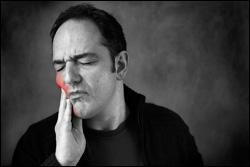TMJ disorders (also known as temporomandibular disorder/TMD) affect the temporomandibular joints, which are the two sliding hinge  joints located on either side of the jaw, connecting it to the skull. The main symptoms of TMJ disorders are pain, difficulty eating and chewing, and in some cases locking of the jaw, which affects the ability to fully open or close the mouth. Dr. Chetna Desai, a dentist in Ellicott City, MD, offers comprehensive diagnosis and treatment options for TMJ disorders.
joints located on either side of the jaw, connecting it to the skull. The main symptoms of TMJ disorders are pain, difficulty eating and chewing, and in some cases locking of the jaw, which affects the ability to fully open or close the mouth. Dr. Chetna Desai, a dentist in Ellicott City, MD, offers comprehensive diagnosis and treatment options for TMJ disorders.
TMJ Disorder Diagnosis and Treatment in Ellicott City, MD
Specific causes for the onset of TMJ disorders are unclear, but, as a joint, it is susceptible to the same injuries and strains as other joints in the body, such as:
- Slipped, ruptured, or injured disc
- Arthritis/cartilage damage and deterioration
- Mechanical injury to the joint through trauma or overuse
- Prolonged teeth grinding and clenching of the jaw
How Do I Know if I am Suffering from TMJ Disorder?
A dentist will perform a physical exam of the jaw and order diagnostic imaging tests like an X-ray, CT scan, or MRI if necessary to determine if the temporomandibular joints have been injured or damaged. Schedule an appointment with a dentist if you are experiencing pain or discomfort in or around the jaw that persists or frequently returns, if you notice limited range of motion of the jaw (having trouble fully opening or closing the mouth), experience locking, or have pain in other areas of the face around the jaw.
How is TMD Treated?
Your dentist may recommend a combination of treatments, depending on the scope of symptoms and damage to the joints. The most common treatments include:
- Over the counter and prescription pain relievers and anti-inflammatory medication
- Muscle relaxers
- Mouth guards and splints
- Physical therapy and behavior modification counseling
- Fluid irrigation of the affected joint (arthrocentesis)
- Corticosteroid injections (some patients have found some relief from Botox injections)
- Surgery (can be performed either on the joint or mandible when conservative treatments fail)
- Alternative/holistic treatments (acupuncture, meditation/relaxation)
Find a Dentist in Ellicott City, MD
For more information on the signs and symptoms of TMJ disorder, and to discuss your treatment options, contact Desai Dental Care by calling (410) 480-9111 to schedule an appointment with Dr. Chetna Desai today.
